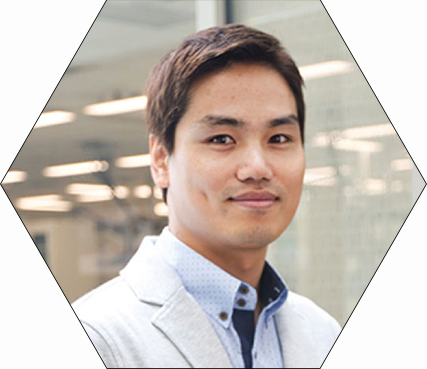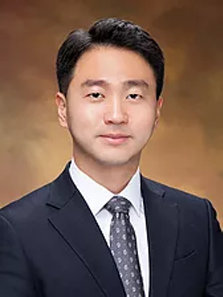

Our workshop is planned for an in-person format (all sessions will be live-streamed) while following the IAS 2023 guidelines.


Wearable devices have progressed significantly in the integration with humans, particularly in rehabilitation and augmentation. This requires an interdisciplinary approach and integration of knowledge from fields such as robotics, human-factors, soft electronics, biomechanics, and neuroscience. The workplace is a promising area for device integration, but personalizing wearable robot control parameters is a challenge. A potential solution is a personalized lower-limb wearable robot that senses a user’s physical effort using soft-wearable electronics. Another example is the use of wearable sensors to improve AR devices. To address these challenges and opportunities, a workshop has been planned to bring together researchers from diverse disciplines related to human-device symbiosis. The workshop aims to present the state of the art, identify open problems, and foster collaboration through invited talks, poster presentations, and panel discussions. Emphasis will be placed on encouraging participation from students and researchers from underrepresented groups.
Our full-day, hybrid (in-person and online mode) workshop will involve seminar talks, panel discussions, and a poster session, with ample coffee and networking breaks. All sessions will be live-streamed via video call to enable access for participants joining the conference remotely (except for the poster session). Below is the detailed information about each session. We’ve structured the proposed sessions to be specifically oriented to include both junior and senior researchers/engineers to organically engage and network amongst each other.
Zoom Link: https://iso.zoom.us/j/97082906963?pwd=VzQ4d0k3UXErck9BVGNZTEFQWVdUUT09
Meeting ID: 970 8290 6963
Password: 373244

Dr. Matthew J. Major
Associate Professor
Northwestern University
Dr. Matthew J Major, PhD, is an Associate Professor of Physical Medicine and Rehabilitation and Biomedical Engineering at Northwestern University and a Research Health Scientist at the Jesse Brown VA Medical Center in Chicago Illinois. He is a faculty member of the Northwestern University Prosthetics-Orthotics Center (NUPOC) where he instructs for the Master’s in Prosthetics and Orthotics clinical education program and directs the NUPOC Prosthetics and Orthotics Rehabilitation Technology Assessment Laboratory (PORTAL). Dr. Major’s research focuses on the design and optimization of rehabilitation interventions to enhance mobility of individuals with musculoskeletal and neurological pathology. His research applies engineering principles, advanced statistical modelling, and data-driven techniques to study human movement and postural control of different clinical groups, and is primarily funded through the US Department of Veterans Affairs and US Department of Defense. He serves on the Editorial Board for the Journal of Prosthetics & Orthotics, the Research Committee of the Orthotic and Prosthetic Education and Research Foundation, the Scientific Committee of the International Society for Prosthetics and Orthotics, and is an Associate Editor of the ASME Journal of Biomechanical Engineering.

Dr. Myunghee Kim
Assistant Professor
University of Illinois at Chicago
Dr. Myunghee Kim joined as an assistant professor at UIC Department of Mechanical and Industrial Engineering. She received her Ph.D. degree from Carnegie Mellon University and held a post-doctoral appointment at Harvard University. She was a control engineer in humanoid robotics at Samsung. Dr. Kim’s primary focus is the development of assistive robotic devices for improving mobility and quality of life through integrative approaches of numerical dynamic models, machine learning techniques, experimental testbeds, and controlled human-subject experiments. At present, she works on developing assistance methods to enhance balance and walking economy using wearable devices (e.g., exoskeletons and prostheses). As a part of this effort, she is also interested in using those devices to understand further an impaired gait and advance training methods of motor function. In line with this research, Dr. Kim also explores the control of autonomous devices (e.g., legged robots).

Dr. Heejin Jeong
Assistant Professor
Arizona State University
Heejin Jeong is an Assistant Professor at the Polytechnic School, the Ira A. Fulton Schools of Engineering, Arizona State University. He is also a Biomedical Engineering Graduate Faculty in the School of Biological and Health Systems Engineering. His focuses include extended reality systems for enhancing occupational safety, healthcare rehabilitation training, and human-robot collaboration in Industry 4.0 manufacturing systems. He received a Ph.D. from the University of Michigan, Ann Arbor, in 2018.

Dr. W. Hong Yeo
Associate Professor
Georgia Tech.
Dr. Yeo is a Woodruff Faculty Fellow, Associate Professor in the Mechanical Engineering and Biomedical Engineering, and the Director of the Center for Human-Centric Interfaces and Engineering at Georgia Institute of Technology. His research focuses on the areas of nano-/microengineering, advanced soft materials, molecular interactions, and bio-electromechanical systems, with an emphasis on stretchable hybrid electronics. Dr. Yeo received his PhD in mechanical engineering at the University of Washington, Seattle in 2011. From 2011-2013, he worked as a postdoctoral research fellow at the University of Illinois at Urbana-Champaign. Dr. Yeo has published over 100 peer-reviewed articles, including many in top-quality journals, including Nature Machine Intelligence, Nature Materials, Nature Communications, and Science Advances. Dr. Yeo is an IEEE Senior Member and a recipient of a number of awards, including the IEEE Outstanding Engineer Award, Imlay Innovation Award, Lucy G. Moses Lectureship Award - Icahn School of Medicine at Mount Sinai, Sensors Young Investigator Award, American Heart Association Innovative Project Award, and Outstanding Yonsei Scholar Award.

Dr. Guik Lee
Associate Professor
Chung-Ang University
Giuk Lee received his B.S. and Ph.D. degrees from the School of Mechanical and Aerospace Engineering at Seoul National University, Seoul, South Korea, in 2010 and 2014, respectively. From 2014 to 2016, he was a postdoctoral researcher at the Institute of Advanced Machinery and Design, Seoul National University, and the Center for Robotics Research, Korea Institute of Science and Technology. From 2016 to 2017, he was a postdoctoral researcher at the Biodesign Laboratory, Harvard University, Cambridge, MA, USA. He joined Chung-Ang University, Seoul, South Korea, as a faculty member in 2018 and is currently an associate professor. He also serves as the CEO of HUROTICS Inc., which develops custom robot suits and provides related services.


Dr. Myunghee Kim
Assistant Professor
University of Illinois at Chicago
Dr. Ashutosh Tiwari
Postdoctoral Research Associate
University of Illinois at
Chicago